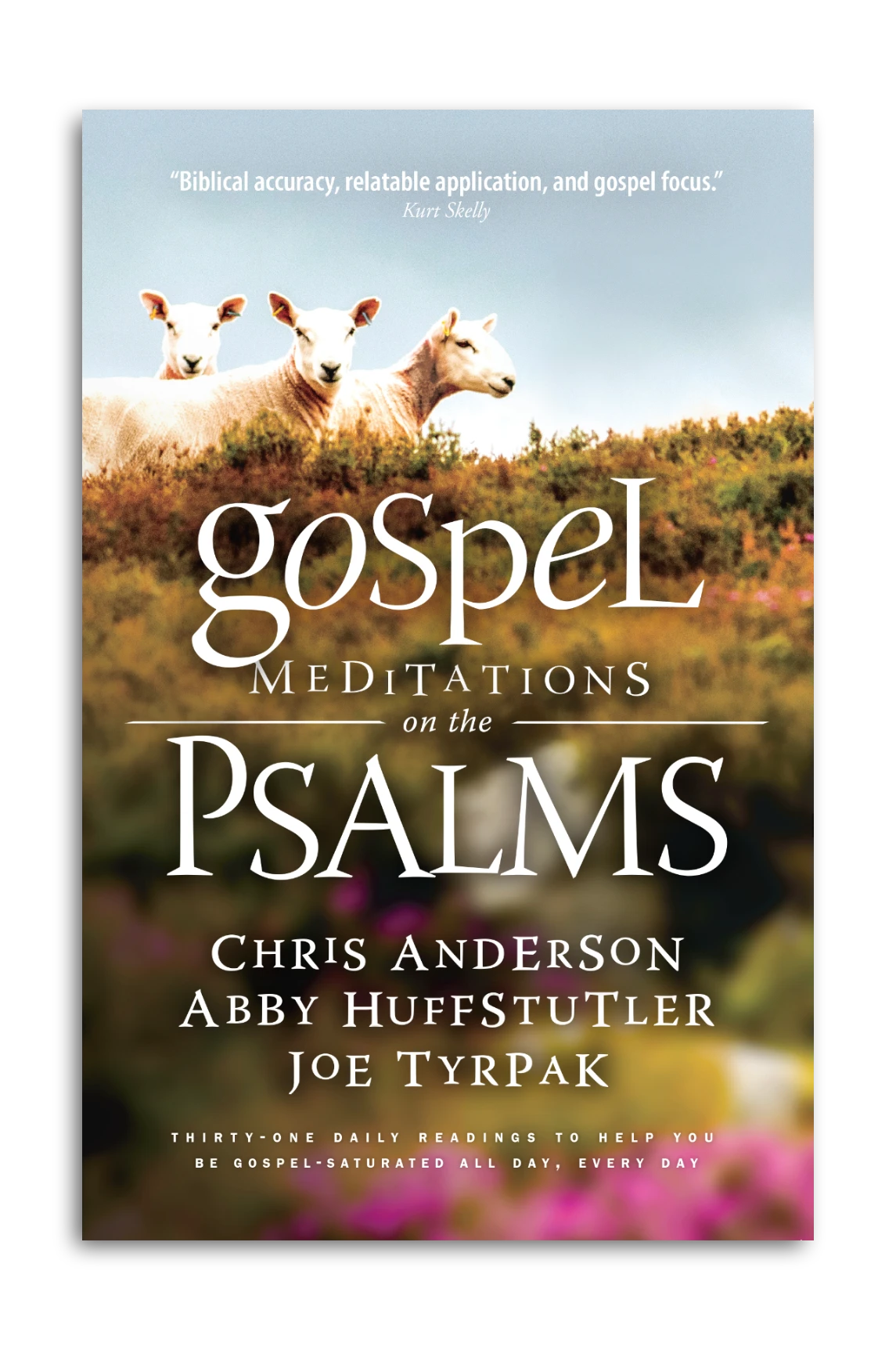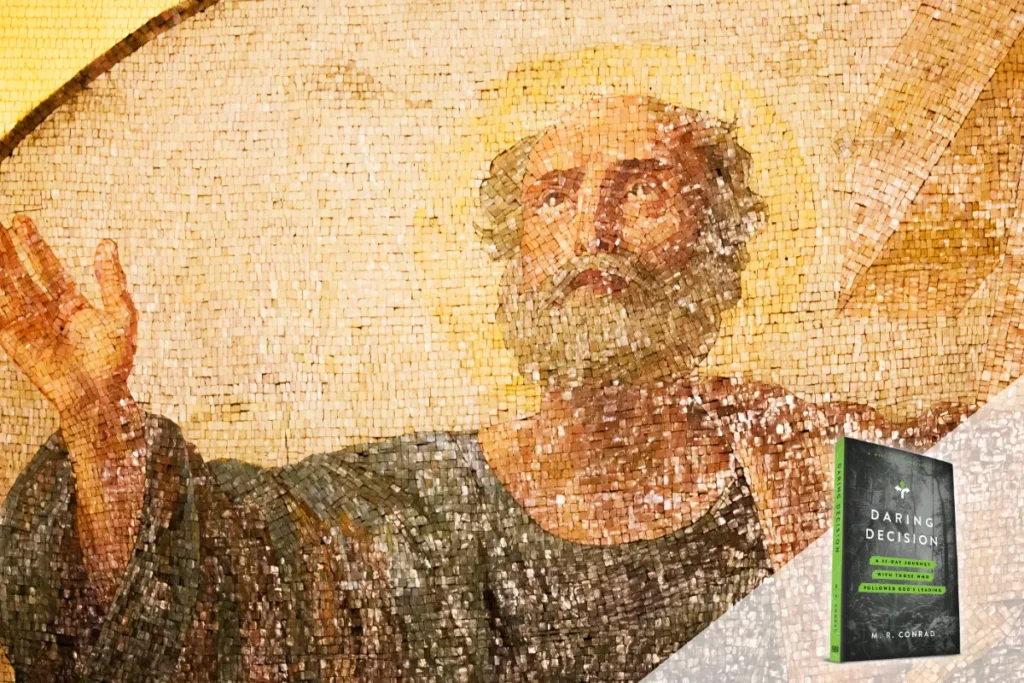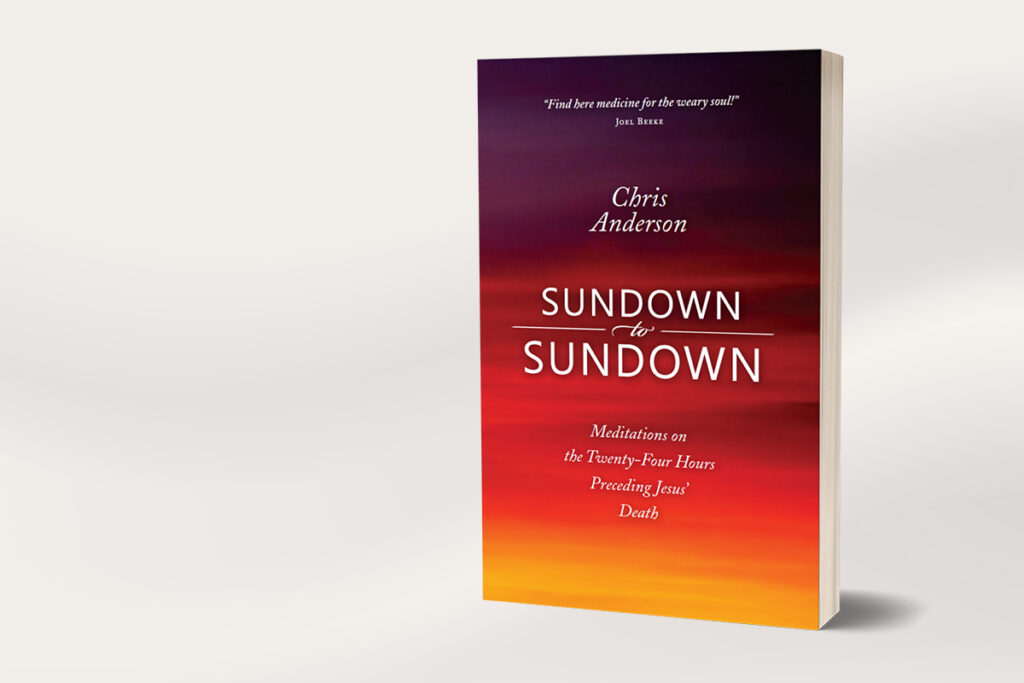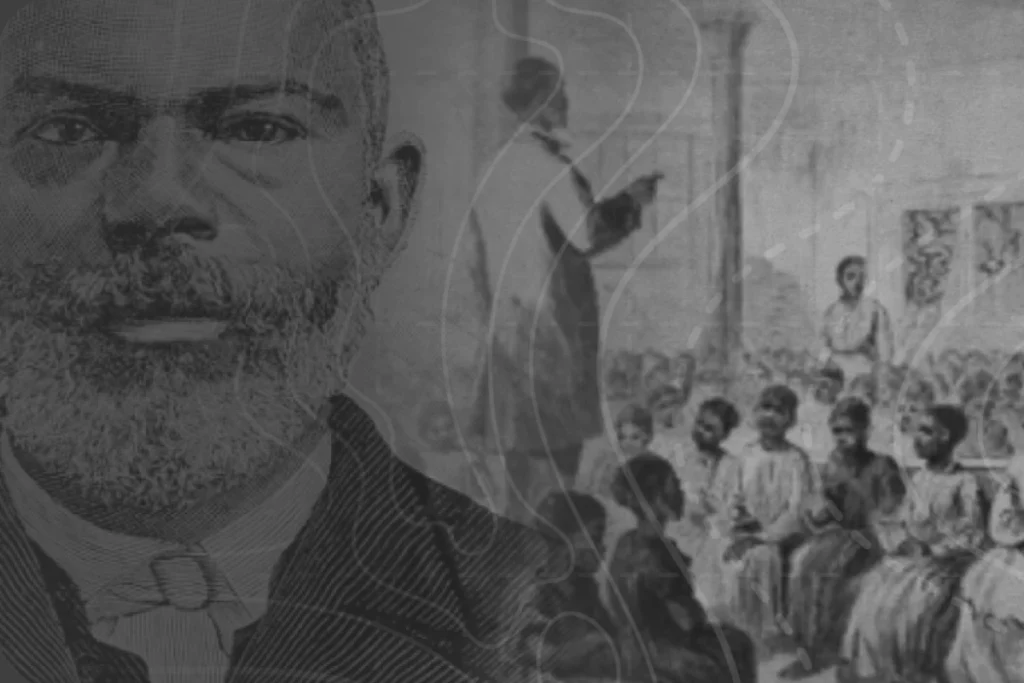
Blog
Forever Loved: A Thanksgiving Meditation

This post by Abby Huffstutler comes from Gospel Meditations on the Psalms (Day 28: “True, Kind Love—That Never Ends”).
“Give thanks to the LORD, for he is good, for his steadfast love endures forever.” (Psalm 136:1)
I am a writer by trade and a very picky wordsmith, so, no surprise—I love a good thesaurus. When I see that in every single verse of Psalm 136, there is a repeated idea—God’s steadfast love endures forever—I want to know more.
In Hebrew, “steadfast love” is one word—hesed. I grew up with a Bible that translated this as “lovingkindness.” Other Bible versions fill this concept out for us: It’s God’s graciousness, loyal love, mercy, compassion, faithful love, steadfast love, kindness.
Caution!—Don’t oversimplify the beauty of this unique, complex, multifaceted Hebrew word. The synonyms help us grasp the depth of God’s care for us. So, what does this uniquely organized psalm tell us about the lovingkindness of God?
God’s steadfast love is eternal.
The psalm’s repeated phrase says that His love lasts eternally. It’s a love that endures forever. God’s kindness to us is supremely loyal. It will never stop, never fail, never end. It’s timeless.
We know that “repetition aids learning.” But when I see the exact same words twenty-six times, I can easily think, “Okay, I get it. God loves me. Forever.”
However, God is the Master-Author—so any redundancy in His writing is intentional. And when someone tells us the same thing over and over again, we believe it more. So, when God says the same thing in every verse, it’s because He wants this cemented in our minds—that He never stops loving us. Ever.
God’s steadfast love is demonstrated in real life.
Every verse of Psalm 136 ends with a line that’s the same—“For His steadfast love endures forever.” But the opening line of each verse varies.
Starting in verse 4, the writer chronicles all kinds of situations where we see this faithful love of God to us. And the psalm’s opening and closing framework for all these statements is a context of thanksgiving. It’s a psalm commanding us to give thanks to the good and supreme God for all He has done (vv. 1–3, 26), for all the times, all the ways, all the places where He has been faithful.
- Give thanks to the God Who made this world (vv. 4–9). He created this incredible universe—heaven and earth, sky and solar system. He gave us incredibly powerful lights—the sun, our moon, and countless stars.
- Give thanks to the God Who redeemed and saved His people Israel (vv. 10–22). He dramatically rescued Israel from Egypt and led them through a desert-wilderness to their promised homeland, eliminating kings one by one.
- Give thanks to the God Who cares for us (vv. 23–25). He is kind to us, provides food for us, and deals with our enemies.
Considered in total, this list is amazing! It catalogs twenty-two times when God has demonstrated His love to His children, all pointing us to His greatest act of lovingkindness: “God shows his love for us in that while we were still sinners, Christ died for us” (Romans 5:8)!
God wants this cemented in our minds—that He never stops loving us. Ever.
I get to the end of this psalm and think, God’s kindness continued faithfully throughout Israel’s history, and it’s not going anywhere. It continues for me, every day. I have experienced God’s love in salvation. And it will never, ever end.
Sadly, even in the face of God’s everlasting, steadfast love, we can be tempted to respond with ingratitude. But Psalm 136 urges us to revolt against any discontentedness we might feel and to praise the Lord for all the mercies He has shown to us.
Let the gospel prompt you to thank God today for His steadfast love toward you.
Explore the whole book!
The Psalms are balms. They have brought help and healing to God’s people for over 3,000 years. Scripture’s 150 inspired songs give us words to pray during times of joy and sorrow, triumph and loss, worship and conviction. They are so vibrant, so beautiful, so real. This 31-day devotional presents short studies of thirty psalms, exploring their connection to the gospel and their direct application to our everyday experiences—our ups and downs, our highs and lows.













